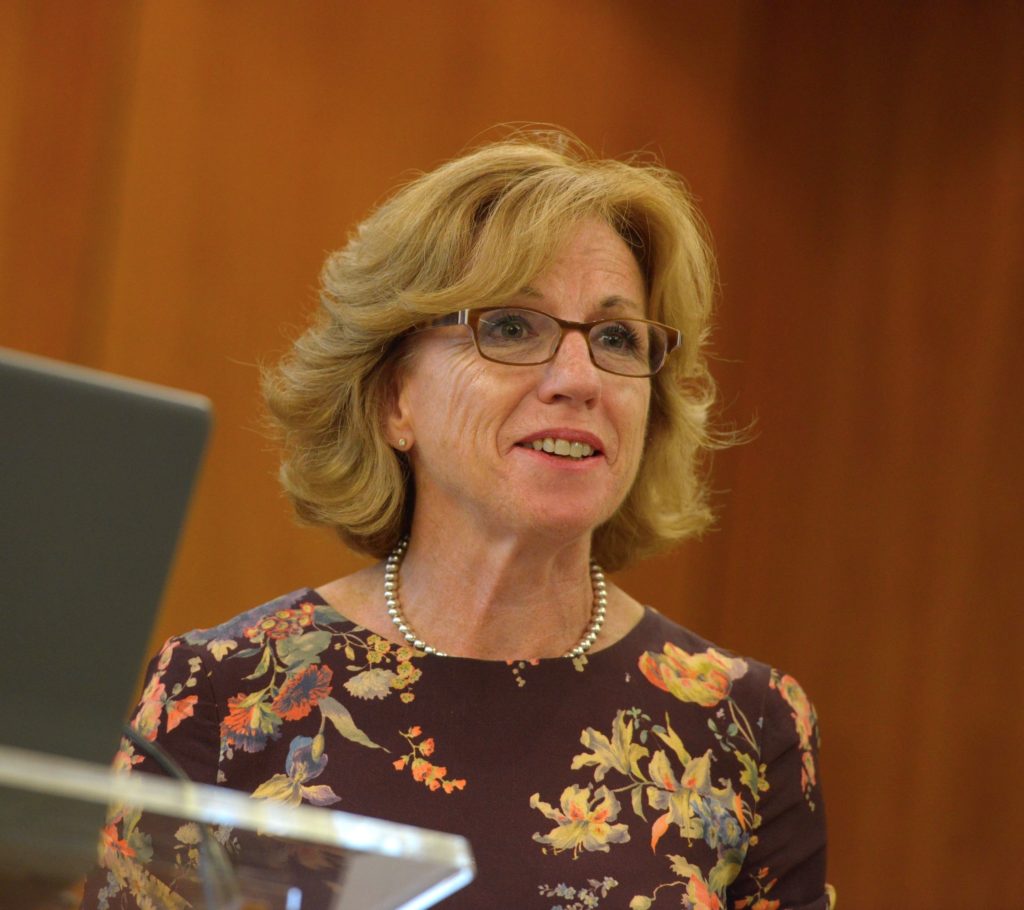Please enjoy reading the news story published on NMC on 13 June 2019.

Florence Nightingale would be proud of the impact the Florence Nightingale Foundation (FNF) Scholars have had, and continue to have, on developing and promoting nursing and midwifery practice.
Since 1929, our Scholars like Florence, have used and developed evidence to enhance nursing and midwifery practice to improve health and care outcomes for the patients and people they support.
Even from her sickbed, Florence supervised the modernisation of nursing, together with advising governments on army reform, sanitation in Britain and India, and hospital design.
What would Florence Nightingale do?
This year marks 199 years since her birth and her legacy lives on but would she say we are doing enough to strengthen our voice? What do I think she would be challenging us to raise with the Professional Registrar?
The FNF acknowledges that the most urgent issue facing the nursing and midwifery professions today, is the severe shortage of registered staff.
Latest NMC figures now suggest the register numbers are increasing for the first time in three years, albeit by a small percentage; the number of nurses grew by 1 percent, over 6,000 nurses and the number of midwives by 1.3 percent, just over 500 midwives. Whilst plans are afoot to increase the numbers into all nursing and midwifery routes we must collectively plan how to attract and retain highly skilled staff.
The FNF plays its part in the professional development and hence retention of the nursing and midwifery workforce. Since 1929, we have inspired, nurtured and supported senior and mid-career nurses and midwives to stay in the professions they love.
Providing these leadership development opportunities is essential but there are over 111,000 Registered Nurses and Midwives aged between 21-30 years and the majority of the 21-25 year-olds, are newly qualified.
Nurture new starters
The beginning of the career for a newly qualified nurse or midwife can be a challenging time. Initial experiences can shape how they develop in their career and a quality preceptorship programme is essential to support them.
It is recognised that where preceptorship is embedded as part of the organisational culture, for example the CapitalNurse Programme in London, there are significant benefits; staff retention, recruitment and staff engagement are all documented benefits.
In 2018 the FNF delivered leadership programmes to 250 band 5 and 6 nurses and midwives. Alas I know that not all have had access to good quality preceptorship programmes.
Whilst the NMC student practice supervision standards enable students to learn and safely achieve proficiency and autonomy in their professional role, this supervision often stops post-registration.
Are we therefore surprised when newly qualified nurses and midwives leave the register?
On behalf of the FNF Nurses and Midwives, the NMC should consider standardising the preceptorship period. This will make the difference between newly qualified nurses and midwives leaving or staying in their professions.
The reduction in variation in nursing practice to improve health and care outcomes is an absolute “must do”.
Develop good leaders
I endorse CNO England Ruth May’s vision to pilot the “Pathways to Excellence” across England. Evidence from this and the Magnet hospitals framework, shows nursing delivers excellent patient outcomes, nurses have a high level of job satisfaction and there is a low nurse turnover. This can only be achieved if we invest in the best nursing and midwifery leaders.
We need leaders that role model great behaviour, challenge poor practice and service provision, but always have the patient at the centre of everything they do.
Can the NMC influence the leadership agenda as part of its new strategy? Can leadership development be linked in part to post registration learning and re-validation?
From my many conversations with the 250 FNF nurses and midwives they are confused about the career pathways to their success. This generation is career ambitious and want clarity on their career prospects. They don’t want to waste a moment doing the wrong job, they want to know where they are going to from the get go. I would like to work with the NMC and others to structure and therefore describe the pathways for early career nurses and midwives.
I am grateful for this opportunity to play my part in the NMC “Shaping the Future” consultation. I would urge each and every one of you to raise your voice on the issues affecting nursing, midwifery and health and social care today and beyond.